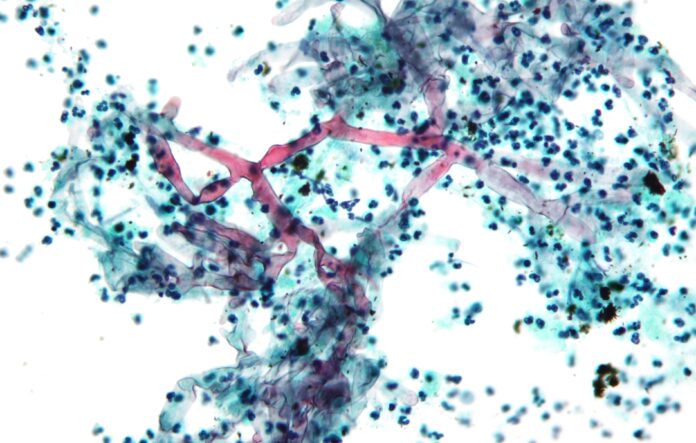Mucormycosis, often called black fungus, is a severe fungal infection that can affect various organs in the body, including the brain, lungs, and sinuses. It is caused by a group of fungi called micromycetes, typically found in soil and decaying organic matter. While mucormycosis is rare, it can be life-threatening, especially for individuals with weakened immune systems or underlying health conditions.
The ancient Indian medical system, Ayurveda, offers several natural treatments for mucormycosis, focusing on herbal remedies, dietary adjustments, and lifestyle modifications to promote natural health and well-being.
Ayurvedic Herbal Remedies for Mucormycosis
Ayurveda has a rich tradition of using herbs to treat fungal infections, and several plants are commonly employed in mucormycosis treatment to support natural health:
– Neem: Known for its potent antifungal properties, neem can help prevent the growth of mucormycetes. It also boosts the immune system, promoting overall natural health. Neem can be consumed orally or applied topically as oil or paste.
– Turmeric: With its anti-inflammatory and antifungal properties, turmeric can reduce swelling and inflammation caused by mucormycosis. It can be used orally or applied topically as a paste to support natural health.
– Amalaki: Also known as Indian gooseberry, amalaki is rich in vitamin C and antioxidants, supporting immune system function and reducing inflammation. It can be taken as a supplement or added to meals as a powder to promote natural health.
– Guduchi: This powerful immunomodulatory herb strengthens the immune system and possesses antifungal properties that help combat mucormycetes. Guduchi supplements are available for oral consumption to support natural health.
– Garlic: Garlic’s strong antifungal and immune-stimulating properties make it effective against mucormycosis. It can be consumed raw or applied topically as a paste or oil to promote natural health.
In addition to these herbs, Ayurveda offers other treatments for mucormycosis, including triphala, ginger, licorice, and aloe vera, all of which contribute to natural health. A qualified Ayurvedic practitioner can create a personalized treatment plan based on individual needs to support natural health.
Dietary Modifications in Ayurvedic Mucormycosis Treatment
Diet plays a crucial role in Ayurvedic treatment for mucormycosis, with a focus on nutrient-rich, chemical-free foods to support natural health:
– Avoiding sugar and refined carbohydrates: These foods can promote fungal growth, so it’s essential to eliminate them from the diet to support natural health.
– Eating a nutrient-dense diet: A diet rich in vitamins, minerals, and antioxidants supports overall natural health and strengthens the body’s defenses against infections.
– Consuming probiotics: Probiotic-rich foods support immune system function and reduce the risk of fungal infections, contributing to natural health.
– Anti-inflammatory foods: Omega-3 fatty acids help reduce inflammation and promote healing in mucormycosis patients, supporting natural health.
Lifestyle Modifications for Mucormycosis Management
In addition to herbal remedies and dietary changes, certain lifestyle modifications can support mucormycosis treatment and overall natural health:
– Getting adequate rest: Sufficient rest is essential for recovery, especially for individuals battling mucormycosis, to support natural health.
– Managing stress: Stress can weaken the immune system, so practicing stress-reduction techniques like deep breathing exercises and yoga is beneficial for natural health.
– Maintaining good hygiene: Proper hygiene practices, including handwashing and wound care, prevent fungal spread and support natural health.
– Avoiding exposure to fungal spores: Limiting exposure to environments where fungal spores are prevalent reduces the risk of infection, especially for immunocompromised individuals, promoting natural health.
Conclusion
Ayurvedic treatment offers a holistic approach to managing mucormycosis, focusing on natural remedies, dietary adjustments, and lifestyle modifications to promote overall natural health and well-being. While conventional treatments like antifungal drugs and surgery may be necessary in severe cases, Ayurveda can complement these therapies and promote overall natural health. A personalized treatment plan tailored to individual needs, developed in collaboration with a certified Ayurvedic practitioner, can optimize outcomes for mucormycosis patients and support natural health.



















